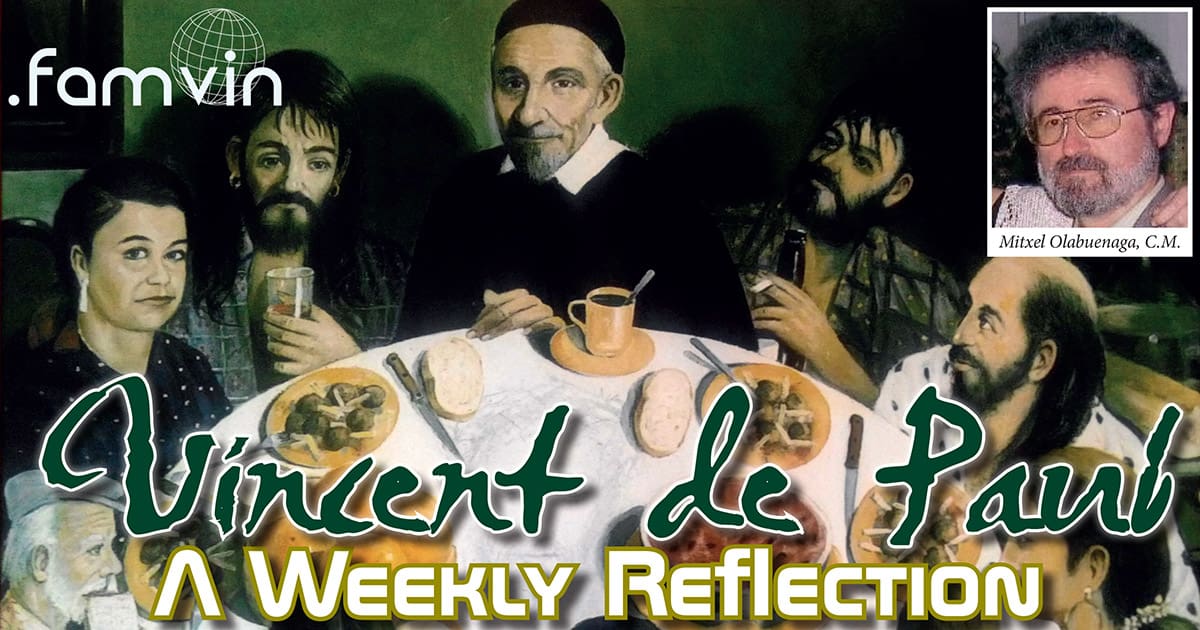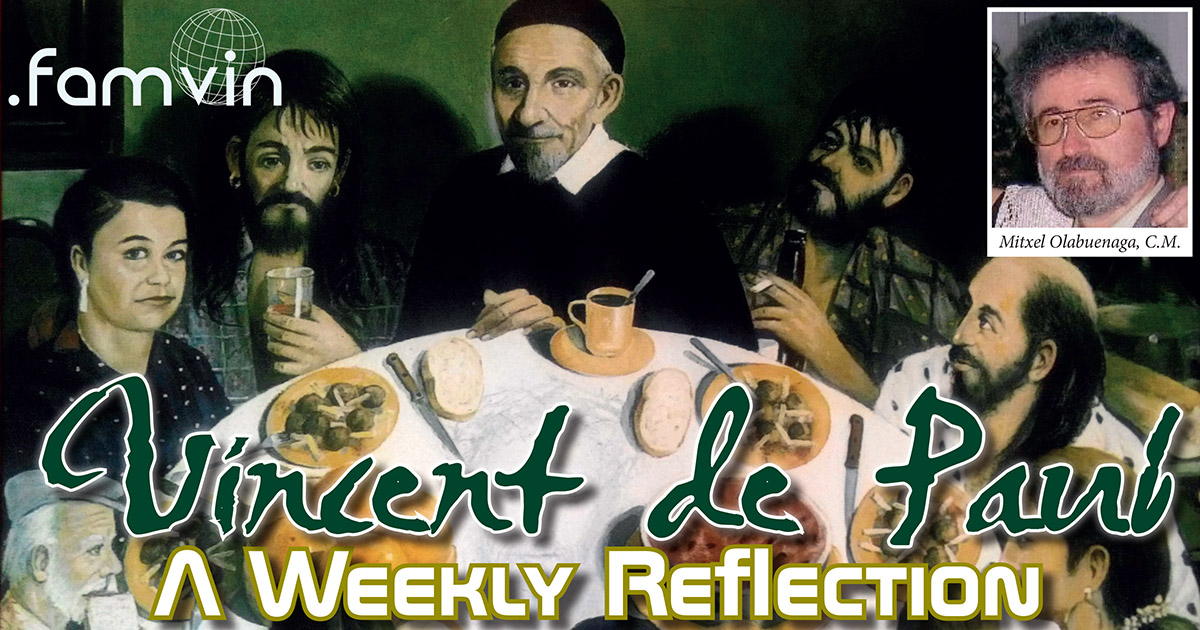Submission or Responsibility? • A Weekly reflection with Vincent
“To adore God means to acknowledge Him as the Creator and Savior of the world, and the sovereign Lord of all things, recognizing that we depend entirely on him for both body and soul; therefore say to Him, ‘Lord, I acknowledge You as the one whom all creatures are bound to obey; and as for myself, Lord, I submit entirely to Your Divine Majesty'” (CDC X, conference 105).
Vincent de Paul
Reflection:
- His gasconian origin often leads to Mr. Vincent to strip things down linguistically and mentally. I want, therefore, to suppose that the divine “majesty” refers to the divine “will.” On some other occasions this idea is much more explicit: “to fill oneself with the will of God,” “to do nothing without knowing the will of God,” “this work will go forward if it is the will of God”…. Perhaps this is one of the great motivations hidden in the conversion of Mr. Vincent, especially when he discovers the privileged “place” of meeting that will: the condemned poor people…
- This “submission” (perhaps it should be called “being with God”) stems from the firm conviction of the sovereignty of the God who creates and of the God who saves. But “salvation” does not derive from a God who creates to save, but creates for us to be eternally happy. Only the persistent detachment of the created being makes the mercy of God unfold in sending the Son. And God demands of himself what, in times past, demanded of Abraham: the sacrifice of the one who is sent.
- If all created beings (begotten) are dependent on the creator (parent) the same applies to the relationship with God. And it is not a “spiritual” relationship, but it embraces body and soul, that is to say the whole person. The relation of “dependence” is, on the other hand, reciprocal to such an extent that God will never abandon his “creature,” even when breaking this dependence in a thousand ways and in a thousand moments. It is very bold to affirm that, as long as the human being is “free” to break the covenant of God, God hands are tied to fulfill the obligations that come from being “father/mother.”
- The end of the text is wasted: “I recognize you as,” “I submit completely.” Two affirmations in one. The first is on a “theoretical-ideological” level because, in short, the recognition of a reality (whatever it is) does not have to go further, Even when referring to the truth. I would say that, in this sense, it affects the intellectual plane (of which Mr. Vincent was better endowed than most of the clergy of his time). The second aspect of this coin is more forceful: “I submit to your will”… Here’s the important thing!… that which makes Mr. Vincent a saint. And, from this conviction, to display its consequences in whatever works the circumstances offer. We could put in his mouth: “I stand if that is the will of God; this work will go forward if it is the will of God.”
Questions for dialogue:
- How can “submission” and “freedom” be put in the same sentence?
- Is it possible to translate the concept of “submission” to our context?
- Are our communities encouraging those who seek the will of God?
- How do we perceive the will of God?
- Is the “will of God” a criterion in the foundation and/or maintenance of our works?
Mitxel Olabuenaga, C.M.
Tags:








0 Comments